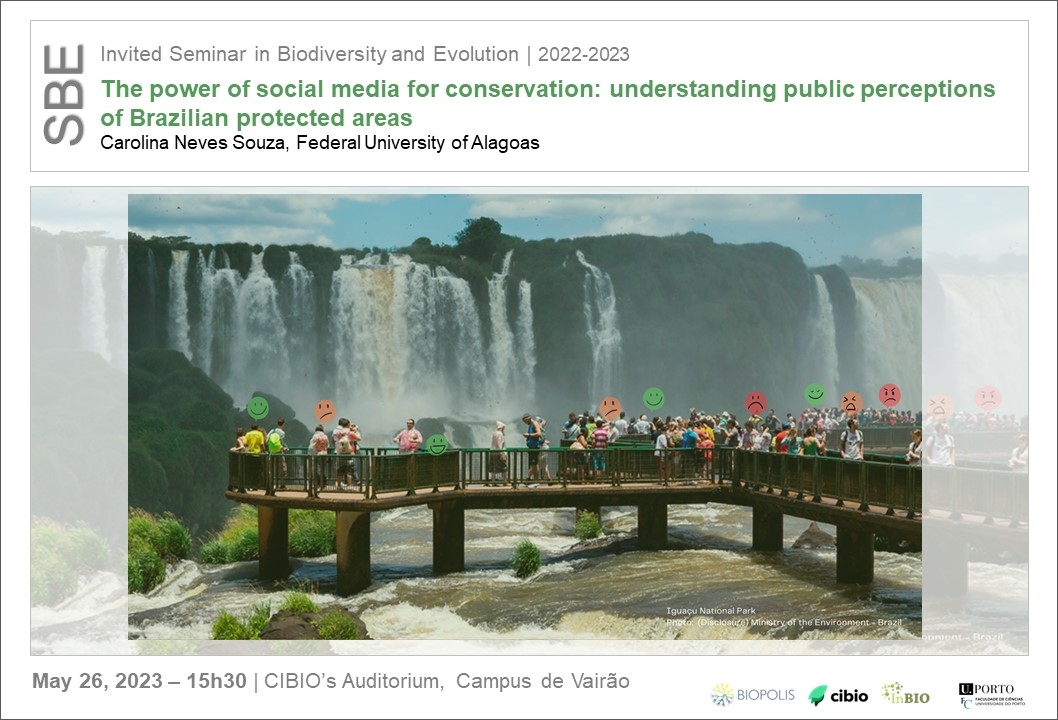The power of social media for conservation: understanding public perceptions of Brazilian protected areas
Event
INVITED SEMINAR IN BIODIVERSITY AND EVOLUTION
May 26th, 2023
Carolina Neves Souza, Federal University of Alagoas | 15h30 | CIBIO’s Auditorium, Campus de Vairão

INVITED SEMINAR IN BIODIVERSITY AND EVOLUTION
Social media platforms are a valuable source of data for investigating cultural and political trends related to public interest in nature and conservation. Here, we use the micro-blogging social network Twitter to explore trends in public interest and sentiment towards Brazilian protected areas (PAs). We identified around 400,000 Portuguese-language tweets pertaining to all categories of Brazilian PAs over a twelve-year period (1st January 2011 to 31st December 2022). We analyzed the content of these tweets and engagement metrics to uncover patterns and drivers of public engagement and perceptions about Brazilian PAs. Our results indicate that users and tweets mentioning protected areas remained stable throughout the sampled period. However, engagement grew steeply, particularly from 2018 onwards, coinciding with a change in the Brazilian government. Furthermore, public interest was not evenly distributed across PAs; while national parks generated the most tweets, mainly related to tourism activities, tweets related to conflicts among park users and managers were more likely to engage Twitter users. In the second phase of our study on sentiment analysis in Brazilian national parks, we were able to identify which events and topics cause negative feelings about the parks. Our study highlights that automatic or semi-automatic monitoring of social media content, engagement, and public sentiment has great potential as an early warning system to identify emerging conflicts and to generate data and metrics to support environmental policy and management at the level of individual PAs or networks of PAs.
Carolina Neves Souza is a PhD student in the Biological Diversity and Conservation in the Tropics program at the Federal University of Alagoas and a volunteer at the Yandê Institute: Education, Culture, and Environment. She graduated with a degree in Biological Sciences from the Center for Higher Studies of Maceió (2010) and earned a master's degree in Environmental Management and Policies from the Development and Environment Program at the Federal University of Pernambuco (2017). Her master's thesis focused on environmental governance in marine protected areas. Carolina was a research fellow with ICMBio on the Protected Coastal Marine Areas - GEF Mar Project, working on socio-environmental management in the Costa dos Corais Environmental Protected Area.
[Moderator/Supervisor: Ana Sofia Vaz, Invasion Science - InvasionS, 21st Century Conservation Lab - LACOS21]
